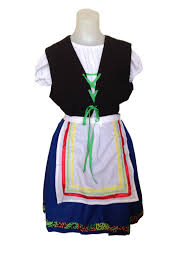I’M JUST CURIOUS: What is an apron?
 by Debbie Walker
by Debbie Walker
‘What is an apron?’ may sound like a foolish question to some but I assure you there are people who do not know what it is or its purpose. I admit that I did not realize how many styles there were and their purpose. I am again sharing with you.
 The apron most of us older folks probably think of is our grandmother’s. However, I am not sure we all appreciated the many jobs it assisted grandmother with. The original purpose was to protect the dress underneath. It was cheaper to make than new dresses, easier to wash. There were times they even used it as a potholder. It helped grandmother to dry a child’s tears and maybe even wipe a nose or two (sorry if you have a weak stomach).
The apron most of us older folks probably think of is our grandmother’s. However, I am not sure we all appreciated the many jobs it assisted grandmother with. The original purpose was to protect the dress underneath. It was cheaper to make than new dresses, easier to wash. There were times they even used it as a potholder. It helped grandmother to dry a child’s tears and maybe even wipe a nose or two (sorry if you have a weak stomach).
Those aprons were known to carry eggs from the coop possibly even a baby chick or two to warm up in the kitchen. Did you ever hide behind her apron because you were shy with strangers? An apron was used to wipe a brow or at times to warm grandmother’s arms.
Today, can you imagine the germ freaks testing to see how many were on your favorite grandmother’s apron?
There are aprons for many different uses, more than I ever imagined. Waist aprons that cover the body from the waist down and bib aprons that cover the entire front. You find aprons to cover a list of problems and then mostly today you will find the comical ones used for things like barbecuing or home bartending.
The Pinafore is an apron used by girls and women as a decorative garment or as a protective apron, protective applies to most. Have you ever heard of a Tabard? It’s an apron that covers both front and back of body used for bakeries, hospitals, and large retail stores.
I had never heard of the Tabard nor had I ever heard of the Bungalow apron. It looks to me like it was a cross between a house coat (robe) and the house dresses of that time. Today, I believe the Bungalow is called a Lounger.
There are others that are like the ones we have discussed (special occasion, job related, etc.) but they may have been made of leather. The cobblers apron comes to mind.
In the 1650s the apron became part of the law. Women and girls were to dress properly; think of the Puritans. I believe their black dresses and the long white apron was considered proper.
You can find this and more information on the History of Aprons on the internet. It has been an interesting read to me.
The Wandering Nanas are still wandering at this writing. Tonight, we will be going to see the city of Pittsburgh and the night lights around the PNC Park. This has been an amazing trip. Exciting and relaxing at the same time. We will be heading back to Florida this week. Once we are back, I’ll write Chapter 2 of The Wandering Nanas. Nana Dee has been dreaming up other possible trips for us so we may have additional chapters to come.
I really would like to hear from you and your apron memories. Contact me at dwdaffy@yahoo.com. Hope you have enjoyed the read. Don’t forget we are on line as well. Thank you for reading!
Responsible journalism is hard work!
It is also expensive!
If you enjoy reading The Town Line and the good news we bring you each week, would you consider a donation to help us continue the work we’re doing?
The Town Line is a 501(c)(3) nonprofit private foundation, and all donations are tax deductible under the Internal Revenue Service code.
To help, please visit our online donation page or mail a check payable to The Town Line, PO Box 89, South China, ME 04358. Your contribution is appreciated!


Leave a Reply
Want to join the discussion?Feel free to contribute!